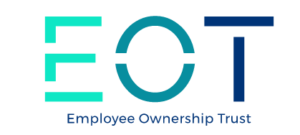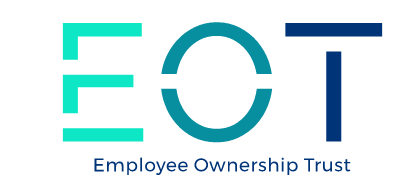FAQ - Starting an Employee Ownership Trust with UKEOT
1. What is an Employee Ownership Trust (EOT)? An EOT is a unique model where company shares are held collectively in a trust on behalf of employees. This gives employees an ownership stake and allows them to share in the profits and growth of the company.
2. Why should I consider transitioning to an EOT? Transitioning to an EOT can offer numerous benefits, including increased employee engagement, potential tax advantages, and a sustainable succession plan for business owners.
3. How can UKEOT assist me in setting up an EOT? UKEOT provides comprehensive services for businesses looking to transition to an EOT. Our services include EOT legal setup, company valuation, share transfer, employee communication, and ongoing support.
4. What is the process of transitioning to an EOT with UKEOT? The process involves several steps, including:
- Initial consultation to understand your business needs.
- Accurate independent valuation of your company’s overall value and shares.
- Legal setup and share transfer into the EOT.
- Communication and training for employees about the EOT model.
- Ongoing support and guidance.
5. How long does the transition process take? The duration can vary based on the complexity of your business and the specific requirements. However, our team at UKEOT ensures a smooth and efficient transition, guiding you every step of the way.
6. How do I determine the value of my company for the EOT? UKEOT undertakes an accurate independent valuation of your company’s overall value and shares to facilitate the share transfer into the EOT.
7. How will my employees benefit from an EOT? Employees benefit in several ways, including having a stake in the company, sharing in its profits, and having a say in its direction and growth. This often leads to increased motivation, loyalty, and productivity.
8. Are there any tax advantages to transitioning to an EOT? There can be potential tax advantages for both business owners and employees when transitioning to an EOT. It’s essential to consult with a tax professional to understand the specific benefits for your situation.
9. Can UKEOT assist with employee communication and training about the EOT? Yes, UKEOT places a strong emphasis on thorough communication and training for employees. We ensure that employees understand the details and benefits of the EOT model, leading to a successful launch.
10. What ongoing support does UKEOT provide after the EOT setup? UKEOT offers ongoing guidance and support as you operate under the EOT structure. You can rely on our expertise for any issues that arise or changes needed to keep your trust running smoothly.
11. How can I get started with UKEOT? You can reach out to us for an initial consultation. Our team of experts is here to answer any questions and guide you through the process. Contact us at contact@eot.co.uk or call +44 7971 854920.
12. What differentiates UKEOT from other EOT service providers? UKEOT boasts a team of legal, financial, and ownership transition specialists who can handle the entire EOT process for you. Our comprehensive approach and dedication to client satisfaction set us apart in the industry.
13. I’m unfamiliar with EOTs. Do you provide educational resources? Yes, UKEOT offers a range of resources, including articles, videos, and seminars, to help business owners understand the benefits and intricacies of EOTs.
14. Can any business transition to an EOT? While many businesses can benefit from an EOT, it’s essential to assess the company’s structure, size, and objectives. Our experts at UKEOT can provide a consultation to determine if an EOT is right for your business.
15. How does the EOT impact company leadership and management? Transitioning to an EOT doesn’t necessarily mean a change in day-to-day management. The operational control can remain with the existing leadership, while the EOT provides employees with a stake in the company’s success.
16. Are there any industries where EOTs are particularly beneficial? EOTs can be beneficial across various industries. However, they’ve seen significant adoption in sectors like manufacturing, services, and retail, where employee engagement directly impacts company performance.
17. How does UKEOT handle potential conflicts or disagreements during the EOT transition? Our team is skilled in mediation and conflict resolution. We prioritize open communication and work closely with all stakeholders to address concerns and ensure a smooth transition.
18. What’s the cost of transitioning to an EOT with UKEOT? The cost varies based on the complexity of the transition and the specific services required. We recommend reaching out to us for a tailored quote.
19. Can UKEOT assist businesses outside of the UK with EOT transitions? While our primary focus is on UK businesses, we have the expertise to advise on EOT structures in other jurisdictions. Please contact us to discuss your specific needs.
20. How do employees access their benefits or profits from the EOT? The distribution of benefits or profits to employees is typically outlined in the EOT’s trust deed. UKEOT can assist in setting up a fair and transparent distribution mechanism.
21. What happens if I decide to sell my business after setting up an EOT? Selling a business with an EOT can be more complex, but it’s not impossible. UKEOT can guide you through the process, ensuring that the interests of all stakeholders, including the employees, are considered.

